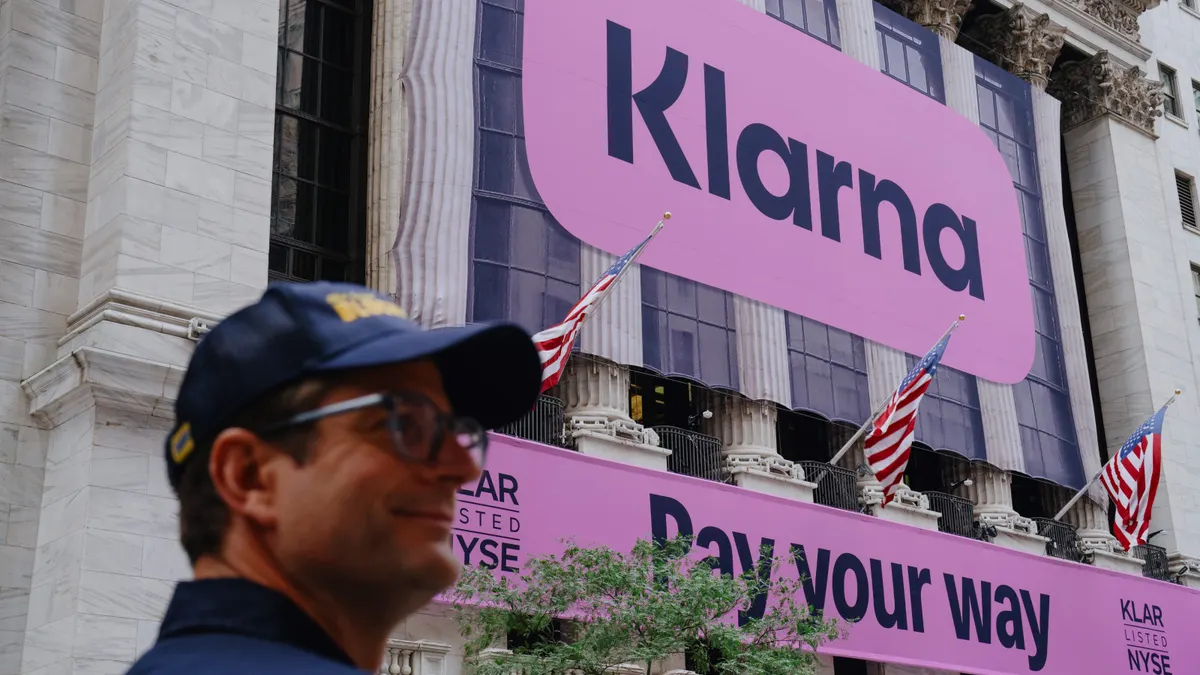Klarna is still bullish on AI despite scaling back plans to replace human agents.
The buy now, pay later firm’s AI customer service agent can now do the work of more than 853 full-time agents, according to Klarna CEO and co-founder Sebastian Siemiatkowski. That’s up from 700 in the beginning of the year.
The AI agent, he said, has saved the company $60 million.
“We continue to see very demonstrable value from Klarna's AI assistant,” Siemiatkowski said on a Q3 2025 earnings call Tuesday. “We continue to invest in this.”
Klarna’s boasting comes not long after the buy now, pay later firm “overpivoted on their AI strategy,” said Kate Leggett, VP principal analyst at Forrester.
In 2024, as it began to prepare for an IPO, Klarna rolled out its AI agent, laid off workers and paused hiring. But the company turned back to human customer service representatives this May.
That same month, Siemiatkowski said customers should always have the option to speak with a human. It began hiring for what Siemiatkowski referred to as an “Uber type” customer service workforce.
“They overpivoted to cost containment, without thinking about the longer-term impact of customer experience. If you have a poor customer experience, at some point, customers are going to get fed up leave,” Leggett said. “They’re almost the poster child for bad AI deployment.”
Customers complained the AI agent provided generic answers and was unable to answer more complicated, more nuanced questions, Leggett said. In trying to automate as much of its customer service as possible, Klarna laid off customer service representatives with institutional knowledge.
However, Klarna claimed there was “no drop in consumer satisfaction following the rollout of our AI assistant” in a first quarter 2025 earnings report. In the third quarter presentation, the company claimed customer satisfaction with its AI assistant is “on-par” with a human agent, and Siemiatkowski touted the overall company net promoter score of 73.
While complaints regarding AI may appear at odds with Klarna’s claims of success, it may come down to what its AI agent can handle. AI agents are generally good at handling simple questions — like how to reset a password — and can answer them quickly.
“A lot of the questions they get are highly repetitive and fairly simple, and that’s a perfect candidate for AI,” Leggett said. “The simple inquires will get fully automated. The more nuanced questions will fall to your human customer service workers.”
The efficiency of Klarna’s assistant contributes to that success. Klarna’s AI agent handled two-thirds of all customer inquiries, improved response times by 82%, and decreased repeat issues by 25% since launch, a Klarna spokesperson told CX Dive in May.
“AI will definitely erode jobs,” Leggett said. “It doesn’t only eliminate, it is used to deflect contacts. You also use it on the customer service desktop to help human customer service representatives do their job faster. Some of that is probably attributed to increased productivity among human workers.”
The buy now, pay later firm has seen success since its IPO in September. It reported 114 million active users, up 32% from last year, and third quarter revenue of $903 million, up 26% year over year, according to an earnings report.
Even with the $60 million cost savings from the AI agent, customer service and operations cost the company $50 million in the third quarter, up from $42 million a year ago.
“With their IPO, I wonder how much of this cost savings was having their optics well managed for them going public,” Leggett said. “That timing of overpivoting sort of matched their IPO timing.”














